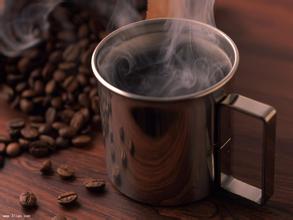Introduction to the flavor and taste characteristics of Kenyan coffee manor with bright flavor
Kenya is bordered to the north by Ethiopia, the origin of Arabica coffee trees, but it was not until the beginning of the 20th century that coffee cultivation began. In the 19th century, missionaries introduced Arabica trees from the leaves, but did not plant them in large quantities. It was not until 1893 that coffee was cultivated on a large scale due to the introduction of Brazil's ancient bourbon seeds. In other words, Kenyan coffee was of Brazilian origin, due to changes in water, climate and handling methods. The flavor of Kenyan beans is very different from that of Brazilian beans. Brazilian coffee is planted at a low altitude, with soft texture and no obvious sour taste. In contrast, Kenyan coffee trees are mainly concentrated on the slopes near Mount Kenya, about 4 to 6500 feet above sea level, which is suitable for coffee beans to develop their flavor, because the mountain temperature is lower and the growth is slower. The full development of the aromatic components of coffee beans should not be underestimated by small farmers in Kenya, who are just like ants and soldiers, with an overall production capacity higher than that of large farms, about six to four, which is quite rare in bean-producing countries. Kenyan coffee is widely appreciated by connoisseurs, thanks in large part to small farmers guarding the foothills and producing high-quality coffee. In addition, Kenya beans must have a strict grading system. Coffee beans taken out by washing plants are divided into five grades according to size, shape and hardness, with the highest being PB, followed by AA++, AA+, AA and AB. This grading system is similar to Colombia, mainly in terms of particle size and shape, but selling well does not necessarily lead to good flavor. This is what coffee fans should know. The current international evaluation of Kenyan beans is not as good as in previous years. It is believed that this has something to do with today's abnormal climate, which is not conducive to the growth of coffee, but the matter is not so simple delicious coffee, in addition to pay attention to the appropriate temperature, but also have the right amount. Drinking coffee is not like drinking or juice, a full cup of coffee, watching it will lose interest in drinking. Generally speaking, it is only seven or eight minutes full for the right amount, moderate amount of coffee will not only stimulate the taste, after drinking it will not have a "greasy" feeling, but endless aftertaste. At the same time, the right amount of coffee can moderately promote the body to recover from fatigue and refresh the mind.
There are different flavors of coffee, so you can't drink three or four cups in a row like tea or cola, but the size of a formal coffee cup is just right. Ordinary coffee to 80-100cc for the right amount, sometimes if you want to drink three or four cups in a row, then it is necessary to dilute the concentration of coffee, or add a lot of milk, but still take into account the degree of physical needs, to add or reduce the concentration of coffee, that is, do not cause greasy or nauseous feeling, and in the allocation of sugar might as well be more changes to make the coffee more delicious. The Kenyan government takes the coffee industry very seriously, where it is illegal to cut down or destroy coffee trees. Kenyan coffee buyers are world-class high-quality coffee buyers, and no other country can grow, produce and sell coffee on a continuous basis like Kenya. All coffee beans are first purchased by the Kenya Coffee Commission, where they are identified, graded, and then sold at weekly auctions, where they are no longer graded. The best coffee grade is bean berry coffee (PB), followed by AA++, AA+, AA, AB and so on. The fine coffee is shiny, delicious and slightly alcoholic. Kenyan Coffee has become more famous with the sensation of the Hollywood movie "out of Africa". Karen, the heroine played by Meryl Streep, is a writer and coffee planter. Many people probably remember Karen's yellow-and-white linen dress, the beautiful scenery and the magnificent sunset. What is even more unforgettable is Karen's dream of having a coffee plantation in Africa.

Important Notice :
前街咖啡 FrontStreet Coffee has moved to new addredd:
FrontStreet Coffee Address: 315,Donghua East Road,GuangZhou
Tel:020 38364473
- Prev

Introduction to the flavor and taste characteristics of Salvadoran coffee manor with deep taste
Don't underestimate El Salvador's coffee production. In its heyday, it was once the fourth largest coffee producer in the world, but decades of civil war almost dragged down the coffee industry. fortunately, the war has stopped in recent years, and the coffee industry has come back to life. The only benefit that the civil war brought to the country of El Salvador was that the farmers left their fields barren and failed to catch up with the most popular Katimo sun-exposed cultivation train in the past two decades.
- Next

Introduction to the flavor and taste of citrus-flavored and sweet Rwandan boutique coffee bean manor
Rwanda has been growing coffee since colonial times. Although the crops are mainly coffee, the quality of coffee produced in Rwanda is not outstanding, and its status in the coffee world is low, and few people pay attention to it. Most of the coffee varieties grown in Rwanda are bourbon. Rwanda, known as the country of Thousand Hills, has a high-altitude mountain environment, fertile volcanic soil and abundant precipitation.
Related
- Detailed explanation of Jadeite planting Land in Panamanian Jadeite Manor introduction to the grading system of Jadeite competitive bidding, Red bid, Green bid and Rose Summer
- Story of Coffee planting in Brenka region of Costa Rica Stonehenge Manor anaerobic heavy honey treatment of flavor mouth
- What's on the barrel of Blue Mountain Coffee beans?
- Can American coffee also pull flowers? How to use hot American style to pull out a good-looking pattern?
- Can you make a cold extract with coffee beans? What is the right proportion for cold-extracted coffee formula?
- Indonesian PWN Gold Mandrine Coffee Origin Features Flavor How to Chong? Mandolin coffee is American.
- A brief introduction to the flavor characteristics of Brazilian yellow bourbon coffee beans
- What is the effect of different water quality on the flavor of cold-extracted coffee? What kind of water is best for brewing coffee?
- Why do you think of Rose Summer whenever you mention Panamanian coffee?
- Introduction to the characteristics of authentic blue mountain coffee bean producing areas? What is the CIB Coffee Authority in Jamaica?

